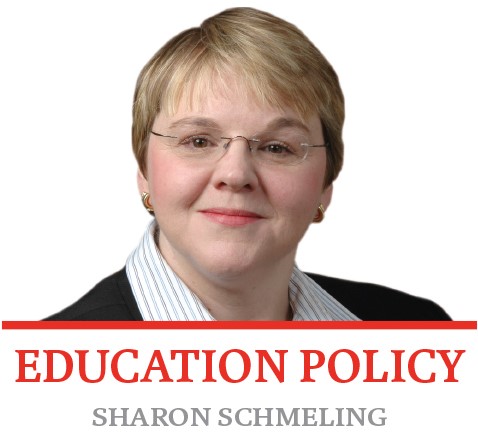Catholic Wisconsin
It’s finally over. The elections are behind us, and now we have to live with the results.
At least until the next election two years from now. Through it all, we are reminded that what was once old is new again.
When I felt inundated by the circus of ads and salacious accusations that were ever more prevalent on both sides, I recalled what my Catholic grandmother said: “One never knows how things will turn out on this side of the Cross. So pray.”
She left Germany in 1938 to escape the reign of Adolf Hitler. Earlier, Germans essentially had two choices on the ballot, according to Grandma: Joseph Stalin or Hitler. And they knew what Stalin had wrought. The other candidate was untested.
Only by the benefit of hindsight do we know how horribly that turned out.
So, here we are all these years later, still choosing between names on a ballot, and it seems we humans still haven’t learned to love one another. But Grandma, who is long gone from this earthly plain and all of its imperfections, said we should try.
This is why children need access to our schools, which includes all diocesan schools in the state. We help parents teach that lesson of love. It’s one sorely needed by society. And it’s also a big job for which families need support.
Our daily task at the Wisconsin Council of Religious and Independent Schools is to ensure that lawmakers know that.
When we at WCRIS meet with new and returning legislators, we want them to understand we are nonpartisan. We work with anyone who values what our schools bring to the state’s education infrastructure.
We remind them that:
- There are more than 120,000 private school children in Wisconsin who constitute a 10 percent minority that, if they were any other group, would not be forgotten;
- These children attend more than 800 schools that help foster community in areas statewide;
- The schools are mostly K-8, and the children will graduate on to attend public high schools, so we are also concerned about public schools’ quality;
- The vast majority of the schools are Christian and overtly reflect a mission and values that mirror that;
- These schools employ more than 10,000 faculty who have bachelor’s degrees or higher;
- If private K-12 schools closed, state and local taxes would have to increase by $1 billion dollars annually to make up for our private philanthropy.
This often surprises legislators. In response, even opponents temper their rhetoric and maybe even their positions. Supporters are grateful for the facts. They are happy our real-life experience and perspective can inform a myriad of swirling education issues. They often call on us.
But if it were only that simple.
Consequently, we often have to use our schools’ experience to explain to an otherwise supportive legislator why his or her idea to “help” our schools is really not welcomed or needed. It might sound good, but in practice it will only create problems. Those are delicate conversations.
And we don’t have just 132 state legislators to influence. There’s the governor and his cabinet secretaries, an attorney general, a superintendent of public instruction, and all of their staffers. In addition, there are countless other nonprofit groups who like what we do and want to help us do more of it. Because they fund campaigns, they have influence to get what they want. We need them.
And since we don’t engage in electioneering, make campaign donations or support candidates, we have to work harder to make up for that.
We do have something the others don’t have though: our 10,000-plus private school administrators, faculty and staff who can be deployed to help explain our positions. It works. Last legislative session, we delivered 1,000 emails in less than 10 days to help motivate lawmakers to include time worked in private schools toward the state’s updated requirements for lifetime teacher licenses.
The roadblocks blessedly disappeared. Lawmakers were suddenly responsive to our entreaties. There were even legislators who had their position on the bill recorded as supportive after it passed committee. Our teachers were granted full inclusion.
And, we also have you, dear readers. Please pray for us this session that we can be similarly successful in protecting our religious schools from a growing secular culture.
Because like Grandma said, you never know how things will turn out on this side of the cross.

